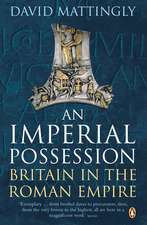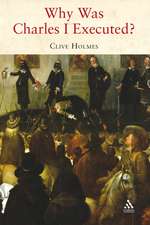Richard the Lionheart
Autor Jean Florien Limba Engleză Paperback – 27 iul 2006
| Toate formatele și edițiile | Preț | Express |
|---|---|---|
| Paperback (1) | 218.19 lei 3-5 săpt. | |
| EDINBURGH UNIVERSITY PRESS – 27 iul 2006 | 218.19 lei 3-5 săpt. | |
| Hardback (1) | 363.88 lei 6-8 săpt. | |
| Bloomsbury Publishing – 29 mar 2007 | 363.88 lei 6-8 săpt. |
Preț: 218.19 lei
Preț vechi: 237.56 lei
-8% Nou
Puncte Express: 327
Preț estimativ în valută:
41.76€ • 43.54$ • 34.70£
41.76€ • 43.54$ • 34.70£
Carte disponibilă
Livrare economică 27 februarie-13 martie
Preluare comenzi: 021 569.72.76
Specificații
ISBN-13: 9780748620470
ISBN-10: 0748620478
Pagini: 544
Ilustrații: 12 illustrations
Dimensiuni: 156 x 236 x 24 mm
Greutate: 0.7 kg
Editura: EDINBURGH UNIVERSITY PRESS
Locul publicării:United Kingdom
ISBN-10: 0748620478
Pagini: 544
Ilustrații: 12 illustrations
Dimensiuni: 156 x 236 x 24 mm
Greutate: 0.7 kg
Editura: EDINBURGH UNIVERSITY PRESS
Locul publicării:United Kingdom
Notă biografică
Jean Flori is an internationally known French historian of the crusades and knightly society. Author of many books and articles, he is Director of Research at the Centre d'etudes superieures de civilisation medievale in Poitiers. Trans. Jean Birrell.
Recenzii
Flori has undertaken an ambitious task, examining one of the most famous medieval kings from multiple perspectives. He analyzes Richard the Lionheart's life as it really was, presenting readers with a straightforward biography, but also examining that life as the king himself evidently wanted it portrayed and as it has been mythologized ever since. Part 1 is the biography, dealing with Richard's growing conflicts with his father, Henry II, his relationship with his mother, the formidable Eleanor of Aquitaine, and his relations with his brothers. It examines his roles as feudal prince and warrior, king of England, crusader, and captive and his war against Philip Augustus on mainland France, which eventually led to his death. Part 2 explores the king as mirror of chivalry, analyzing the enduring images of Richard Lionheart--the nature of his death and how that conflicted to some extent with the chivalric image he had created for himself, the possible origins of the name Lionheart and how much of the knightly image Richard manufactured, and just how well he lived up to that image. Buttressed with copious notes and an extensive bibliography, Flori's analysis offers fresh perspectives on a famous and much-studied subject. Highly recommended. Upper-division undergraduates and above.
Flori offers more than just a fascinating portrait of Richard the Lionheart. Through the personality and actions of this tempestuous 12th-century character, Flori delves into the origins and meaning of the medieval code of conduct commonly known as chivalry. King Richard was the product of a profoundly violent culture that led to the dominance of the knight on horseback. Flori emphasizes that, at the heart of his being, Richard I exemplified a conflict that permeated all of 12th-century Christendom: unabated violence vs. Christian ethics. From this conflict evolved the chivalric code that became institutionalized largely through the efforts of Richard as Roi-Chevalier (King-Warrior). The rituals of knighthood mandated a code of conduct that put limitations on the murderous behavior of the ruling elite of Europe and brought order to an increasingly chaotic sociopolitical environment. Flori's critical familiarity with the chroniclers of Richard the Lionheart's era lends an authenticity to this work that even the distinguished medievalist John Gillingham cannot match in his impressive Richard I . Birrell has done a superb job of translating Flori's Richard Coeur de Lion , which makes this distinguished work an essential selection for all medieval history collections.
A French historian of the crusades and knightly society, Flori explains that Richard (1157-99) was never expected to become king, so he worked on developing his martial skills. When succession did seek him out, he became England's first and exemplar Royal Knight. In the first part, she recounts his life, and in the second explores how that life changed ideas about both chivalry and kingship.
The romantic figure Richard the Lionheart is one of England's most recognizable monarchs. A courageous, daring, chivalric defender of the Christian church, the Richard of popular imagination emerges as the quintessential medieval knight. But is this characterization historically accurate? That is the subject of this groundbreaking book by prolific historian Jean Flori. [.] This is an ambitious and meticulously documented work, and Flori makes deft use of a wide range of primary and secondary sources, including poetry, prose, romance literature, eyewitness accounts, letters, speeches, as well as an impressive array of contemporary chronicles written in English, French, and Arabic. .[T]he work is a welcome addition to the historiography not only of Richard the Lionheart, but also of the nature and development of medieval chivalry, knighthood, and kingship.
Flori offers more than just a fascinating portrait of Richard the Lionheart. Through the personality and actions of this tempestuous 12th-century character, Flori delves into the origins and meaning of the medieval code of conduct commonly known as chivalry. King Richard was the product of a profoundly violent culture that led to the dominance of the knight on horseback. Flori emphasizes that, at the heart of his being, Richard I exemplified a conflict that permeated all of 12th-century Christendom: unabated violence vs. Christian ethics. From this conflict evolved the chivalric code that became institutionalized largely through the efforts of Richard as Roi-Chevalier (King-Warrior). The rituals of knighthood mandated a code of conduct that put limitations on the murderous behavior of the ruling elite of Europe and brought order to an increasingly chaotic sociopolitical environment. Flori's critical familiarity with the chroniclers of Richard the Lionheart's era lends an authenticity to this work that even the distinguished medievalist John Gillingham cannot match in his impressive Richard I . Birrell has done a superb job of translating Flori's Richard Coeur de Lion , which makes this distinguished work an essential selection for all medieval history collections.
A French historian of the crusades and knightly society, Flori explains that Richard (1157-99) was never expected to become king, so he worked on developing his martial skills. When succession did seek him out, he became England's first and exemplar Royal Knight. In the first part, she recounts his life, and in the second explores how that life changed ideas about both chivalry and kingship.
The romantic figure Richard the Lionheart is one of England's most recognizable monarchs. A courageous, daring, chivalric defender of the Christian church, the Richard of popular imagination emerges as the quintessential medieval knight. But is this characterization historically accurate? That is the subject of this groundbreaking book by prolific historian Jean Flori. [.] This is an ambitious and meticulously documented work, and Flori makes deft use of a wide range of primary and secondary sources, including poetry, prose, romance literature, eyewitness accounts, letters, speeches, as well as an impressive array of contemporary chronicles written in English, French, and Arabic. .[T]he work is a welcome addition to the historiography not only of Richard the Lionheart, but also of the nature and development of medieval chivalry, knighthood, and kingship.














